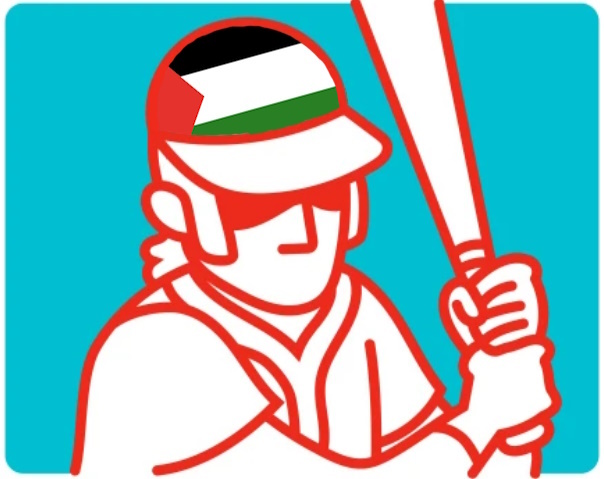I've got one on Tuesday that looks like my best shot at a new job since I got laid off in the summer. It's with a vice president of the company and the person whose position I'm filling since she got promoted
I'm just a little weirdo, I don't know how to make them want to hire me ![]()
Be prepared to answer/create stories on the spot about experiences at work. Common questions in interviews are "Tell me about a time you [did something that shows how you react to various work situations]"
Tell me about a time you had a disagreement with a coworker
Tell me about a time where you made a mistake at work and what happened
Tell me about a time you had diarrhea in a very important meeting
Questions along those longs will probably pop up
Tell me about a time you had diarrhea in a very important meeting
Why sir, I'm shitting as we speak
Just a bit of personal experience, I always get thrown for a loop by these questions and invariably answer with some variety of "this doesn't quite fit what you're asking about, but [story about something somewhat similar]" or "i dont think ive ever been in that position" and sometimes that second one gets the addendum "and that's because im built different and avoid that problem by [some more cautious approach]"
and I must be a pretty good interview guy because these motherfuckers always love me by the end of the process, so as with most things in the interview, i dont think it really matters whether or not you have something applicable to say in response, all that matters is that you can maintain the flow of the conversation in a way that doesn't feel jarring. cause interviews are dumb bullshit and the only objective is to not look like a weirdo, an asshole, or someone incapable of working
Ya you seem great at these. The most important thing is to say anything if you can't come up with a direct answer
Under absolutely no circumstances is it a good idea to say "I've never had this situation come up before"
Be prepared to answer/create stories on the spot about experiences at work. Common questions in interviews are "Tell me about a time you [did something that shows how you react to various work situations]"
Things of note:
-
Keep the anecdotes snappy and to the point, try not to start drifting or rambling.
-
Don't use anecdotes where you don't look good by the end of the anecdote... which is what can happen when 1) starts to happen. ( I might have had an interview where I got a bit too relaxed with the interviewer and I might have done this once.)
-
Lie.
Saw a screenshot going around that some people were surprised people lie during interviews, and you sure as hell need to lie your ass off (typically in the context of interpersonal questions, don’t fuck yourself over by lying about your technical knowledge)
Or if you do lie about technical knowledge (like having used a specific programming library or knowing how to use some other type of software) make sure you have the ability to quickly pick it up. Like if you know you have the ability to learn fast enough they won't notice, but you don't have the specific knowledge they ask for you can definitely lie.
I say this as someone who lied about knowing GIS when the only time I had ever used GIS was when I used Python to plot hurricanes in highschool. But it was pretty easy to learn the specifics because I'd used other design software. Now I'm running that department (albeit in a pretty small company of about 20).
Ask if you're allowed to take notes. If you are, do so. It can help you keep on track if you have multiple points that you want to talk about in response to a question. It also makes you appear thoughtful and diligent.
If you lose track of the question while you're answering it, ask for it to be repeated. This shows accountability and a level of respect for the interviewers. On a similar point, ask for clarification before answering a question if necessary.
Repeat the key parts of the question back as the opening for your response. This will help keep you on track and it shows that you are able to remember instructions and identify the important details, e.g. "So in a situation where I was experiencing conflict with a coworker I would..."
Take your time responding. Acknowledge the question but don't be afraid to take a few moments to start responding if you need to. This shows that you are conscientious, that you handle pressure well, and that you are less likely to make rash decisions that can cause additional work for management.
If a thought comes to you after a question has been asked and you've already moved on to another question, once you've finished responding to the current question it's okay to say something like "Regarding the previous question, I just wanted to add a little bit more to my response..." or something to that effect. This will convey that you are confident, that you are thoughtful, and that you are capable of asserting yourself when it's important.
If you are asked to come up with how you have handled a certain situation in the past but you do not have a decent example, say as much. "To be honest, I have only had minor conflicts with coworkers that have been resolved by discussing it with the person in question to clear up misunderstandings or with one coworker who just didn't like me so I kept out of their way because we didn't have much contact and there was nothing in their conduct which was over the line..." but proceed to answer how you would deal with a serious conflict: "... however if it was a major conflict that I was experiencing with a coworker, I would..."
If you are charismatic enough to pull it off, I find that being charming and disarmingly honest works well on the personal questions and when they ask you how you are, where I would say that I'm feeling a bit nervous but that I'm looking forward to learning more about the job. Something like that. But you have to say it in a way that isn't too self-deprecating or self-pitying and it might be culturally contextual so ymmv.
Also have two questions prepared to ask them at the end of the interview. It can be small, it can be big. Doesn't matter. If both of your questions get answered through the interview, be honest about it and say that you were planning it ask about x and y but they already answered those questions for you.
I would also recommend reading up on things like annual reports and similar official communications. Try to find the values and visions stuff. Pull out the key words they use to describe themselves as an organisation and try to reflect this wording in what you say, where possible.
soft skills are the great satan
unlimited genocide on the neurotypical /s
If you are asked to come up with how you have handled a certain situation in the past but you do not have a decent example, say as much.
It sounds really obvious when you put it like that but I never thought to answer like that before. Ty ty
Practice giving your answers in a STAR format (situation, task, action, response) basically what was the context, what were you assigned/doing, how did you execute and what was the result. The split should be 10/10/70/10, i.e. don't spend too long on the preamble. Make sure to talk to what you did, rather than 'we' did. If you have a 'we' example, you can say 'I, as part of the team' or 'The team and me' to re-emphasise your place in the team.
Write down about half a dozen examples you can think that may cover some of the general question themes, for a desk role these could commonly be:
- conflict resolution (interpersonal, competiting department project goals)
- time management (and pressure)
- independent working (assigned and problem solving without guidance)
- team working (pro-social attitudes, pitching in to help team priorities)
- stakeholder relationships (customers and clients)
Having a look at the position description may give you a clue, especially if they list some of these more abstract skills.
The real trick is using these half dozen rehearsed examples and tailoring them on the fly to fit into any question they give, and making it look like you thought of it on the spot.
To cover for this, you can practice a few stock phrases to stall for time and to think rather than saying "I don't know" for e.g. if you can't think of an example say "Thanks for the question, do you mind if I take a moment to think of the best example?" (Gives the impression you may have multiple and are choosing the most appropriate).
Feel free to break down questions, to define terms, it will help structure your answer e.g. "Tell us a time you had to go above and beyond to meet a client's expectations" you could say "Thanks for the question, it appears to me there are two parts to this. I'll define what the client's expectations were first, and how they diverged from our normal service, before I can get to how I resolved that issue".
Finally, if you're interviewing online, I've heard that looking at the camera, not at the screen, gives the illusion of eye contact and idk apparently hiring panels appreciate it.
I interview well because I honestly rehearse, like it's an audition.
Finally, if you're interviewing online, I've heard that looking at the camera, not at the screen, gives the illusion of eye contact and idk apparently hiring panels appreciate it.
Urgh, I cannot force eye contact to begin with. My eyes walk when I'm talking. That's just happening no matter what. Maybe a paralytic or some sort of pin vice
Yeah I struggle too, but when I do look up I make sure to look at the camera. I interviewed for a role online recently, too, and the screener was like "You seem extraverted which is good because the team is full of introverts" didn't want to contradict them so I was like ahahahah yeah I guess I'm an ambivert. In reality I've had previous managers grill me over eye contact in person fucking sucks and eye contact has nothing to do with intro/extroversion.
I'm pretty bonkers extroverted, will forgo sleep and food if I'm in a comfy conversation and enjoy meeting new people. No idea what's going on though
Do some research about the company, find a recent news story that relates to the role you're interviewing for or some press release they did, form one of your "Do you have any questions for us?" to involve that. Makes higher ups feel important and like normal people care about the company.
Another I used with decent success was to ask at the end if anything brought up during the interview or on your resume was something they had reservations about that way you have an opportunity to answer rather than it just lingering in their head.
Depends on your role, if it's technical this doesn't work as well, but if it's more people oriented I usually end by asking about their dream vacation. It leaves them feeling happy thinking about it because higher ups usually want to flaunt some vacation they just took and get to reminisce then they invariably ask you and you have a chance to humanize yourself because they rarely ask about your hobbies or interests in my experience. Saving it til the end means you're a bit more memorable with the good experience they now associate and makes any concerns stick out less
Good advice. I'd phrase it as 'How has this role become available?' because it may be backfill/parental leave/new position. May not always be replacing a person who's left for good.
They said the person they're replacing got promoted and will be part of the interview
If you can meander easily in conversation, have a boundary for things you won't talk about. Earlier in my 20s I was in an interview that ended shortly after I mentioned that I didn't have a good relationship with my parents.
Rewatch the first few call center scenes from Sorry To Bother You. The idea of a "white voice" is also a class signifier, and utilizing a particular lexicon can confer an uneven advantage.
Rehearsing a couple answers to questions couldn't hurt. And remember, you're not "a little weirdo", you're unconventional. A diamond in the rough.
And remember, you're not "a little weirdo", you're unconventional. A diamond in the rough.
🥹
If they’re talking to you they already want to hire you and want you to do well. So relax and be yourself. When they ask you if you have any questions for them, make sure you ask them if they like working there, how the work life balance is, etc. the things you care about. It’s important for you to check the place for fit too so don’t neglect your needs.
Be professional. Wear a nice office wear, a suit if you want but that might be overkill. Don’t do anything silly like chew gum through the interview, show up disheveled or hungover or something, or god forbid lie about shit. Even inconsequential shit, or you might end up showing your ass if they ask you a bunch of follow up questions.
Researching the company is a nice touch if you have time for it. Research the field a bit that they work in too, you should be prepared to answer very simple questions about what they do. Basically they want to know, would this person be okay to work with, and can they be taught to do the job. That’s a pretty low bar. As long as you don’t bomb the interview you will be made in the shade 😎
Really the important thing is to show that you're engaged and interested in the position. Show that you've looked at their website and know what sorts of things the company does, and be prepared to talk about how that connects to your interests. Ideally, if your interviewer is on Linkedin or the like you'll also want to show that you were interested enough to check them out and learn basic information about them, like their home address. And with small companies especially, remember that bosses really want their work environment to come together like a family, so it never hurts to demonstrate your family values by listing off the names of your interviewer's spouse and kids.
spoiler
feds pls this is joke
Look up interview questions for your position and write your answer down and recite them. Memorize them as much as possible.
Think of any interpersonal questions and memorize the answers for those too.
Think of any random question and remember the answers to those. Even if you don’t remember everything during the interview, you’ll be used to the QA environment and can be less rigid.
Do not drone for 5 minutes when they ask. Just a breather every now and then and be casual.
IME, interviewers tend to like being involved in your answer for whatever reason. Throw in a few “you know what I mean?” or “have you used [x product that’s tangentially related to the company/position]? Well I’m currently using it for my project…” or “do you remember if it’s x that does it or is it y?”
I'd start with being really curious about her experience in that position. What did you like about it? What kind of unwritten rules were there? Was it like my experience doing X, Y, Z? She'll have plenty to say about it having been promoted out of it.
I've come to the conclusion that a good company is looking for familiarity with the work, being reliable, and being pleasant to be around. I think being pleasant is necessarily comes from that active listening when you start asking questions about their experience. During my work for the CIA, I've seen this stark difference between companies who hire people who don't know what's going on and those that do. Take time to talk shop and mention ways that you get past common pain points. Finally, I'd take a moment to demonstrate your ability to, as I think about it, 'get through a Legend of Zelda dungeon' by mentioning a time where you observed X and did Y. Show them that you can be set to a task and relied on to finish it without making their life harder than it has to be. "It was only after I found our vendor's phone number and waited 20 minutes on hold that I learned we no longer had ball point pens. I realized I had to go out and pluck a feather from a goose myself and dip it in a bottle of nail polish to write a letter to our customer."
I also don't think answering questions accurately and fully is as important as getting through your talking points. They'll probably have 2 or 3 key questions that need your full attention to show that your experience is directly applicable. Otherwise, do like a narcissist and use your 15 seconds of fame to show off your greatest assets. They don't actually hire and fire based off of what animal you think you most resemble, but they might look twice after you mention that you have experience that helps bridge the gap between two different departments.
I think my interviews have all been lower-grade than yours, but my experience is solely of interviewers being incredibly superficial and thereby easy to impress. Being well-spoken in standard English (e.g. talking like a middle-to-upper-class white person, especially a coastal, educated type) and avoiding saying negative things about yourself while feigning at least a mild degree of curiosity and enthusiasm for the job and company gets you pretty far.













